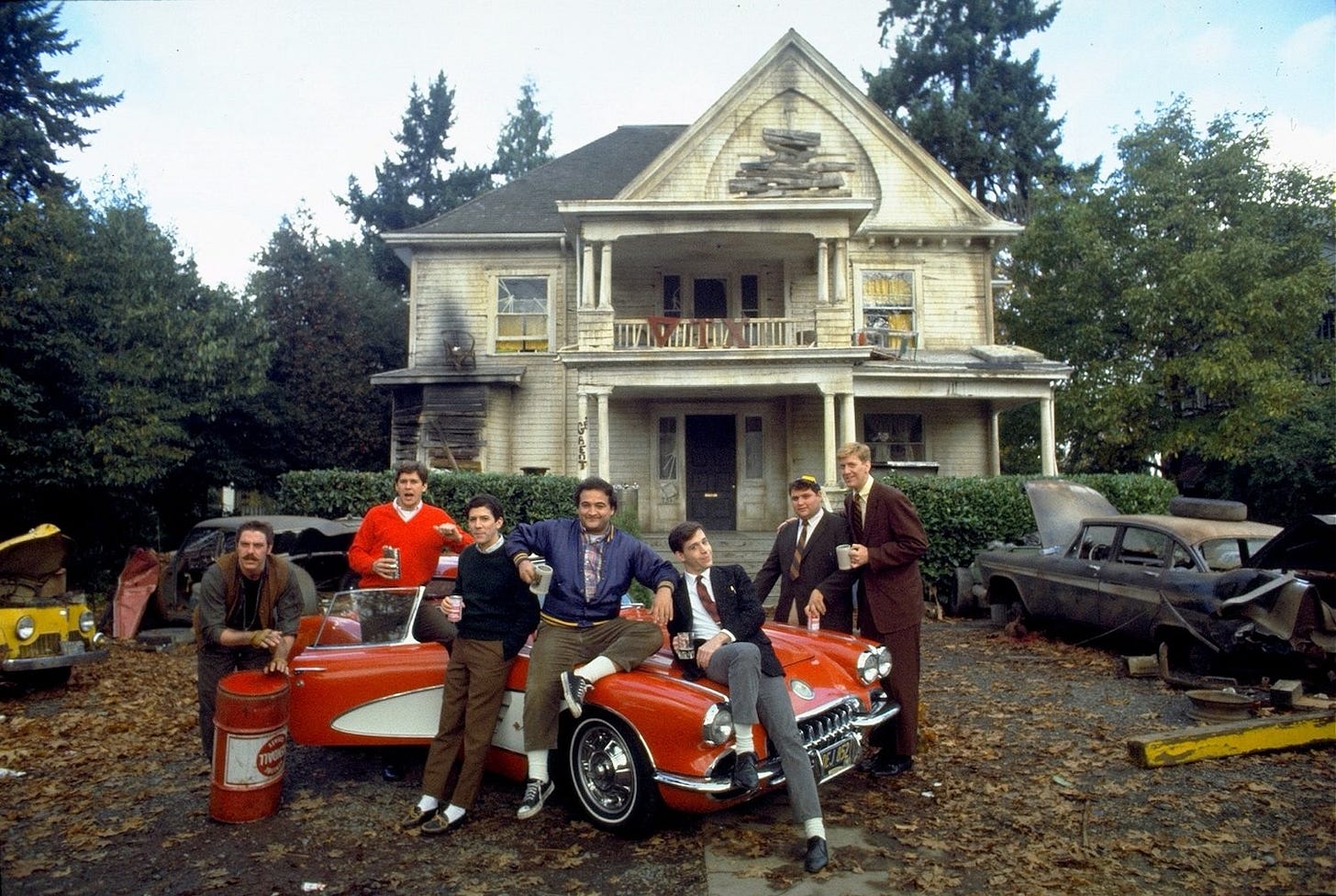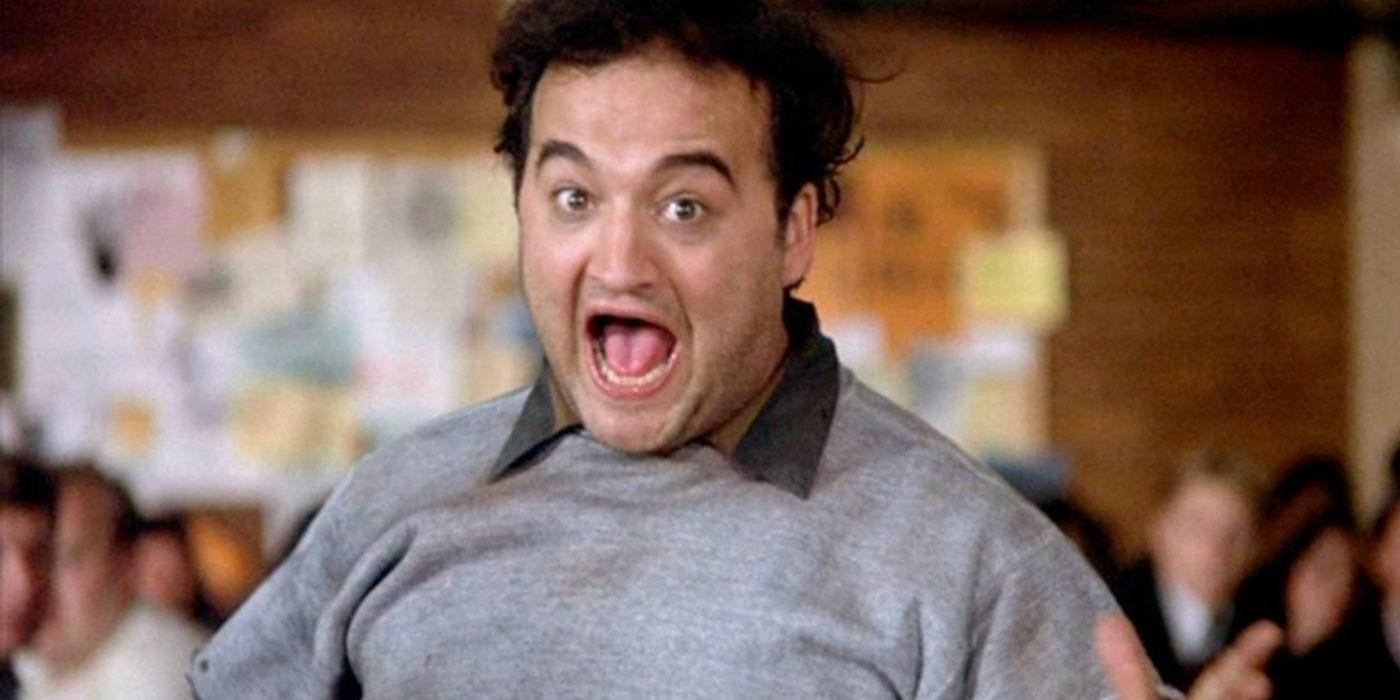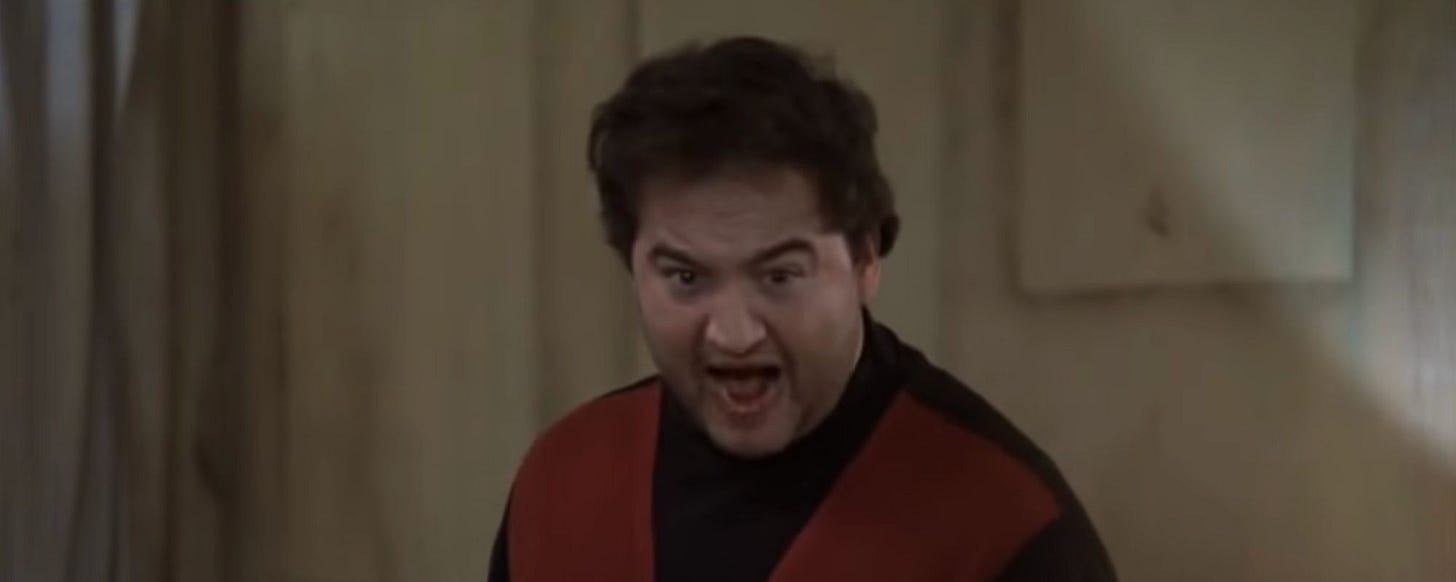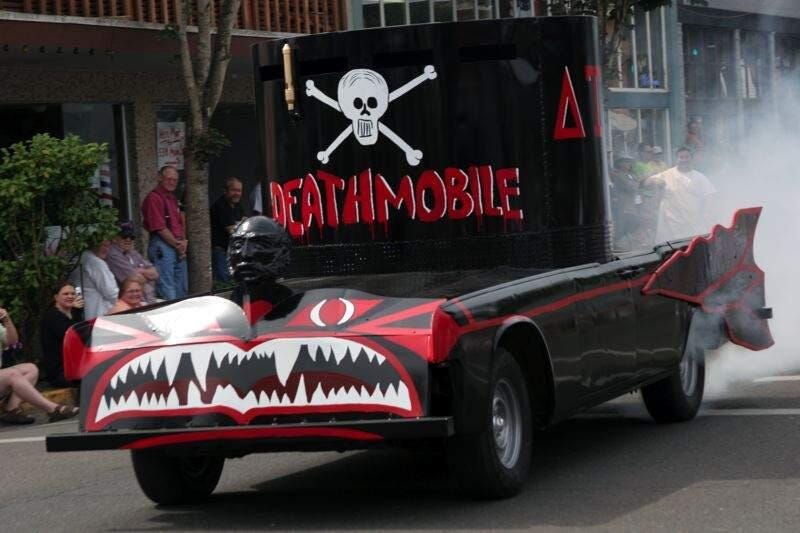Anti-intellectualism is central to Orwell’s Animal Farm. In Animal Farm, the pigs manipulate facts and stifle independent thought, creating a society where questioning authority is dangerous. It show how suppressing intellect and free thought is crucial for maintaining totalitarian power.
Trumpism also thrives on anti-intellectualism, tossing experts aside, rejecting science, and embracing conspiracy theories. It champions gut feelings over facts, painting intellectuals as out-of-touch elitists. Why bother with informed debate when you can ride the wave of emotion and simple answers instead?
It’s easy to see shades of Animal Farm in Trumpism, but here’s the twist: Trumpism isn’t that deep. It’s more Animal House than Animal Farm. If you want to get why people buy into Trump, skip Orwell and rewatch Animal House.
Animal House (1978) is a classic comedy film directed by John Landis. It’s set in 1962 and centres around the rowdy members of Delta Tau Chi, a chaotic and misfit fraternity at Faber College. The fraternity is notorious for its wild parties, pranks, and rebellious behaviour, in stark contrast to the more proper and orderly Omega Theta Pi fraternity and the school administration.
The plot follows a group of new students—"Pinto" and "Flounder" —who join Delta House, and their experiences navigating the fraternity’s shenanigans. Delta House is led by Bluto (played by John Belushi), an infamous slacker with a penchant for mischief. The fraternity is constantly at odds with the uptight Dean Vernon Wormer, who is determined to kick them off campus by putting them on "double-secret probation."
The story is filled with memorable and outrageous moments: pranks on the Omegas, a road trip, and the frat’s infamous toga party. In the end, Dean Wormer expels the Deltas after sabotaging their grades and seizing their house. In retaliation, the Deltas plot an elaborate revenge by wreaking havoc on the college’s annual homecoming parade, causing chaos for the school and the administration.
The film is a satire of college life, focusing on the culture clash between authority figures and free-spirited students, and it helped define the genre of raunchy, anarchic college comedies.
It also mirrors closely how Trump took over the Republican Party.
Bluto, much like Trump, rallies the fraternity of males for one final act of chaos. Bluto's carefree defiance, larger-than-life persona, and disregard for the rules mirror Trump’s takeover of the Republican Party. He thrives on spectacle, rebellion against authority, and an "us vs. them" mentality, which connects with people who feel sidelined by the establishment.
If one scene illustrates this it’s the scene of Bluto’s Big Speech.
When the Delta fraternity is about to be expelled. With no real plan, he delivers a nonsensical yet passionate speech with the now famous line: “Was it over when the Germans bombed Pearl Harbor?” Despite its inaccuracy, Bluto’s conviction rallies his friends through sheer force of personality. Like a Trump speech, it’s light on facts but heavy on emotion and bravado, using bombast to inspire loyalty and defiance, energizing the audience with spectacle over substance.
When the fraternity members in Animal House question the logic of Bluto’s speech but ultimately say, “Just go with it,” it mirrors the moment the Republican Party establishment chose to overlook facts and rally behind Trump. In both cases, there's an acknowledgment that something doesn’t make sense, yet a conscious decision is made to follow along, driven by a desire for unity or shared goals, even at the expense of truth. This highlights how blind loyalty can take precedence over critical thinking, leading to the normalization of absurdity and the dismissal of reality.
Bluto, like Trump, embraces his underdog status, using it as fuel to go after the system that scorns him. In retaliation, the Deltas plot an elaborate revenge, wreaking havoc on the college’s annual homecoming parade, turning the event into an unpredictable circus of chaos. Similarly, Trump disrupted traditional political norms and turned everything into chaos. If Trump wins, chaos will reign.
Both Bluto and Trump show how a reckless figure, celebrated for sticking it to the establishment, can channel dissatisfaction and turn it into disruptive power. Instead of relying on intellect or strategy, they both tap into raw emotion and defiance, making anti-intellectualism part of their appeal. The way you cheered for Bluto in the theatre is the way MAGAs cheers for Trump at rallies.
For those trying to understand Trumpism, Animal House may provide more insight than Orwell’s dystopian worlds—the chaos, rebellion, and dismissal of rules is far more frat-house than farmyard.











I had thought about this driving from someplace to someplace. And forgot about it. Then in the middle of the night I woke and remembered. I also had another similarity about how women are only conquests in the movie or wives. Not real people. That also mirrors the present Republican Party.
Nailed it! I’ve been asking for years why the MAGA’s continue to love this guy after all the proof of his lies and failures, and this explains it perfectly!